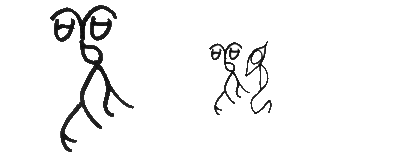I Ching, Yijing or Zhou Yi
"Oracle of the moon": © 2000 LiSe
 Yi Jing, Oracle of the Moon
Yi Jing, Oracle of the Moon

Guān, hexagram 20
The Heron, observing
The heron sits immovable for hours – and in a split second he grasps a fish.
In order to see, one’s own inner world has to be still. Every inner sound overrules the signals, or colors them and distorts them. One can only see under water when the surface is quiet. And to be as vigilant after hours like in the first minutes, that is also only possible with inner stillness. Time does not exist, every minute is a new minute.
Who does not exist himself can see the world, because he does not look, he sees.
About the character yong "devotion" see here.

GUAN: The character represents a man with a big eye (1): to look or see. At
left a bird with big eyes and a crest: a heron. The eyes might be
mouths: a bird with clamor (the oldest graph has no eyes - and no looking man either). More information on it is HERE.
GUAN: see, look, regard, cause to see,
show, observe, behold, inspect, to display, point of view, conception,
aspect, scene, sight, look-out tower, Taoist monastery or temple or
shrine, embellish oneself, to travel for pleasure.
The trigrams: Wind above Earth.
The wind blows over the earth: observing.
The ancient kings inspected the whole country.
They contemplated the people and set up education.